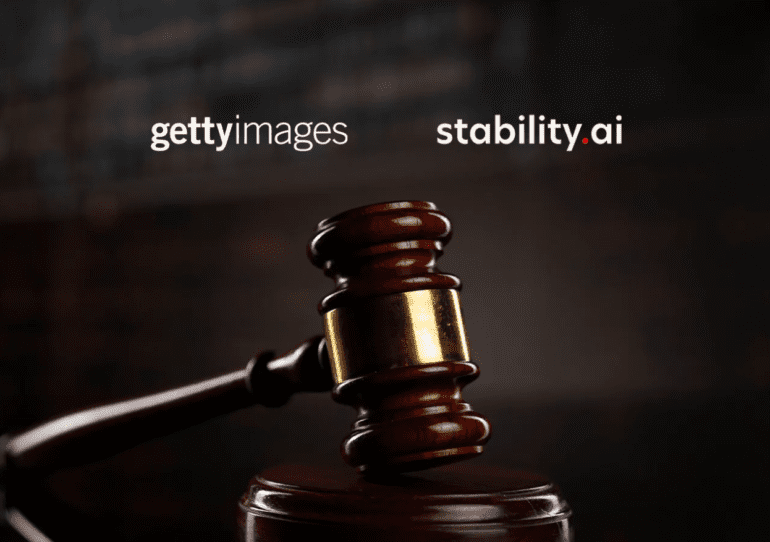TL;DR:
- UK court permits Getty Images’ copyright lawsuit against Stability AI to proceed to trial.
- Getty alleges its copyrighted material was used in training Stability AI’s AI models.
- Stability AI argues against UK jurisdiction, citing no UK involvement and AWS use.
- Justice Joanna Smith questions evidence accuracy, especially statements by Stability CEO.
- Getty Images also has an ongoing copyright infringement lawsuit against Stability AI in the US.
Main AI News:
A significant legal development recently occurred: a UK court ruled in favor of Getty Images, allowing their lawsuit against Stability AI, the creator of Stable Diffusion, to proceed to trial. The court found merit in Getty’s claim that their copyrighted material had been utilized in the training of AI models, marking a pivotal moment in the world of intellectual property rights and artificial intelligence.
The verdict was handed down by the esteemed Business and Property Courts of England and Wales, operating under the umbrella of the High Court of Justice. This decision, delivered on a Friday, signifies the court’s determination to delve deeper into Getty’s allegations that Stability AI had, in fact, employed their copyrighted image library in the development of the Stable Diffusion model.
Stability AI, however, vehemently contended that the matter should not fall under the jurisdiction of a UK court. Their argument revolved around the assertion that none of the individuals involved in the training or creation of Stable Diffusion had any ties to the United Kingdom. Furthermore, the company maintained that it had harnessed the power of cloud computing resources from the US-based giant Amazon Web Services (AWS) to facilitate the model’s development.
In a compelling twist, Justice Joanna Smith, presiding over the case, raised concerns regarding the accuracy and completeness of the evidence presented by both the company and Stability AI’s CEO, Emad Mostaque. The court suggested that a conflict might exist within the evidence, casting doubts on the veracity of their claims. Of particular note were Mostaque’s public statements, where he asserted that Stability had played a pivotal role in expediting the UK residency applications of Russian and Ukrainian developers involved in the Stable Diffusion project.
It’s noteworthy that this is not the only legal battle Getty Images is currently embroiled in concerning copyright infringement. An additional lawsuit against Stability AI is already in progress within the United States. As the court proceedings unfold, the outcome of these cases could have far-reaching implications for the evolving intersection of AI technology and intellectual property rights. Stay tuned for more updates as this legal saga continues to develop.
Conclusion:
This legal development signifies a crucial juncture at the intersection of intellectual property rights and artificial intelligence. The court’s decision to allow Getty’s lawsuit against Stability AI to proceed in the UK raises questions about jurisdiction and the potential ramifications for the broader market. As AI continues to advance, the outcome of this case could set important precedents regarding copyright protection in the digital age, impacting how companies approach AI training data and international legal disputes. Businesses operating in the AI and intellectual property sectors should closely monitor this case for insights into the evolving legal landscape.

